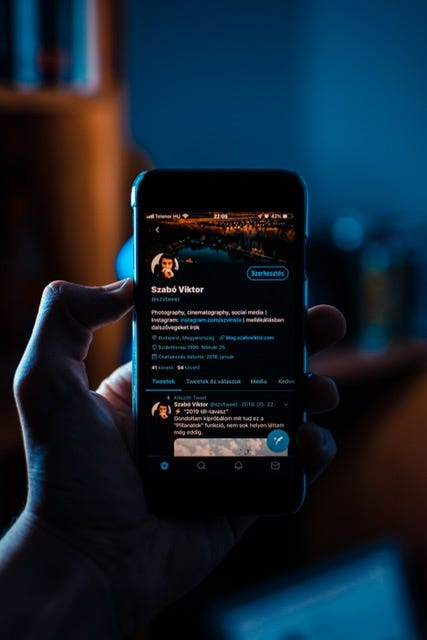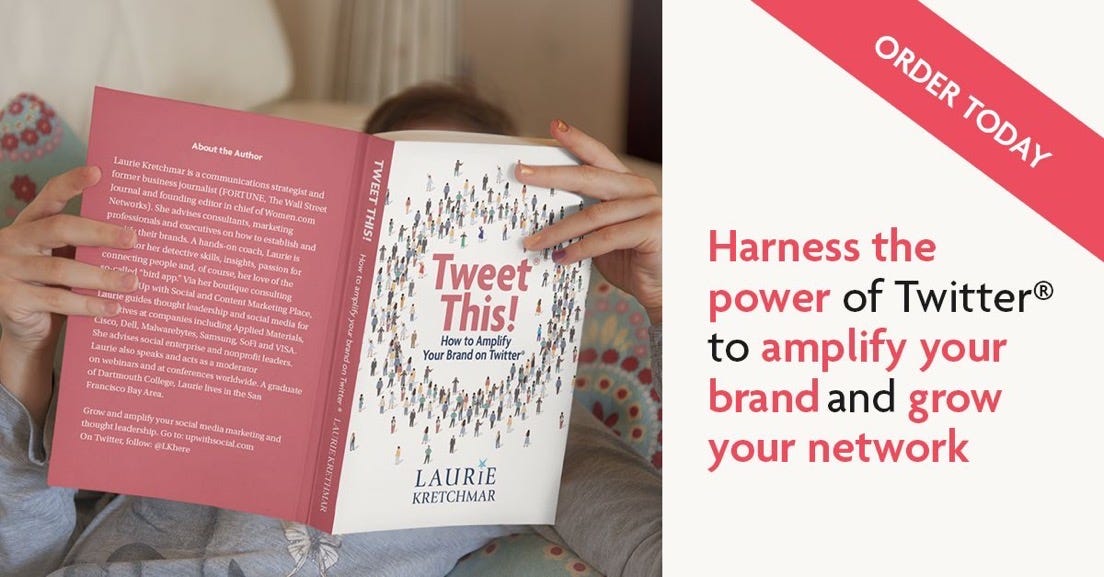Ushering In a “Brand You” Twitter
Over the past several months the media world has been abuzz with news about Elon Musk and his $44 billion bid to purchase Twitter. This comes as Musk recently hit the milestone of 100 million followers on the platform, despite not having tweeted for weeks.
Some think Twitter is for the birds. I've long had reservations about it in terms of its utility for my “Great Books, Great Minds” brand.
Some would argue that investing in tweeting and retweeting campaigns, whether self-driven or through a social media professional, offers a questionable value proposition. Engagement is a challenge. Conversations are brief. Connections are fleeting.
So, why even bother?
Back in 2017, I had the good pleasure of reading the book The Tao of Twitter: Changing Your Life and Business 140 Characters at a Time by Mark Schaeffer that forever altered my thinking about Twitter. My biggest takeaway? — Learning the importance of converting digital conversations on Twitter into offline, one-on-one meetings.
Now, in a just-released book entitled Tweet This!: How to Amplify Your Brand on Twitter, social media pro and communications strategist Laurie Kretchmar, offers a highly accessible guide for everyday people seeking to leverage Twitter to amplify not only their brands but their companies and causes. She touts it as the ideal resource for those who may be timid, skeptical, curious, or just feeling overwhelmed by this rapidly evolving social media platform.
Here at “Great Books, Great Minds” we had the opportunity to talk with Laurie about her just-released book and why Twitter offers users such a unique branding opportunity.
What makes you exquisitely well qualified to share the message of this book?
As a former journalist and tour guide, I instantly "took" to Twitter more than a dozen years ago. I've always been surprised that while journalists, podcast hosts, and many marketing people use Twitter, there are some smart people not using it who would benefit – namely if you're a consultant, entrepreneur, marketing manager, or author.
In fact, a few years ago I saw a stellar New York Times review for a nonfiction book by a history professor, and I noticed that she hadn't tweeted in months. So I promptly got in touch via her university and suggested that that day would be the perfect day to mention the NYT review, while it was fresh. She did and has built a strong community as a result.
Why do you believe Twitter offers such a unique opportunity as a brand strategy tool for companies and causes?
It's easy to update and can be done in less than 15 minutes a day; you don't need fancy visuals as you do on Instagram, YouTube, or TikTok; and Twitter provides the opportunity, as one creative person quoted in my book says, "to conspire with people you have yet to meet."
What do you believe is the biggest misconception the public has about Twitter?
I cover a few of these myths in the opening chapter, which you can download for free from my author's website, upwithsocial.com. One myth is that you need a huge following to make a difference. Others fear it will be too time-consuming. I aim to convince people otherwise.
Who do you believe the message of your book most appeals to? What is your greatest hope in terms of what readers will walk away from your book with?
Despite all the noise and headlines, there's actually a place some call "nice Twitter." Marketing people and business people who attend conferences; give talks of any kind, whether on Zoom, via podcast, or on stage; or do any kind of writing – especially a book! – should have a Twitter presence, and my book shows them how.





